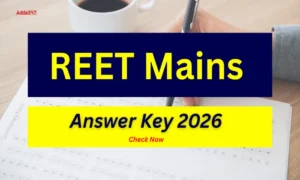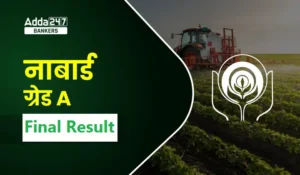
The IBPS Clerk Mains Exam is scheduled to happen very soon. There is not much not time left for the mains examination. In this context, The English Language Daily mock can be a savior for the students by helping them in scoring very good marks in lesser time and effort. Here is a quiz on English Language for IBPS Clerk Mains 2020 being provided by Adda247. English Questions for IBPS Clerk Mains Exam will help you to ace your preparation for the Clerk Mains examination. The Quiz Contains Reading Comprehension.
Directions (1-8): Read the following passage and answer the questions that follow it. Some words are highlighted to help you to answer some of the questions.
Today, on Universal Health Coverage (UHC) Day, I wonder how many readers are aware of what UHC is. According to the World Health Organisation, UHC means “ensuring that everyone, everywhere can access essential quality health services without facing financial hardship”. It sounds basic, yet the basics often pose a major challenge. Japan has been leading the international efforts towards UHC, including its inclusion in the sustainable development goals and G20 agenda under our chairmanship next year, because health is one of our fundamental rights.
India has taken the vital first step towards UHC through Ayushman Bharat. This challenge is reminiscent of the path that Japan took more than half a century ago. Japan created national health insurance coverage in 1961, when it was yet to take off economically. A major political decision was required to expand national health insurance and establish medical schools all over Japan. The implementation of UHC could only have been possible through an early and vast national investment, and through a comprehensive government effort, with the Ministries of Health, Finance and Education, as well as local governments, working together.
This investment has paid off. UHC has increased the number of healthy people and healthy workers in Japan. It has contributed to the economic miracle of Japan. Moreover, UHC has ensured social equity by functioning as a mechanism for redistribution of incomes. Even in the remotest of places in Japan, you do not have to worry about healthcare. The peace of mind which UHC ensures to the Japanese is an indispensable ingredient of our overall well-being.
We are also partnering with India in wide-ranging projects for better healthcare. Japan has previously worked with India to eradicate polio in India. Today, Japanese and Indian doctors are exchanging ideas and expertise at a research and control centre on diarrhoea established by Japan in Kolkata, and precious lives of newborns are being saved daily in a children’s hospital constructed in Chennai. In 17 cities across Tamil Nadu, urban healthcare systems are being strengthened with our cooperation.
When Prime Minister Narendra Modi visited Japan at the end of October, India and Japan signed a new Memorandum of Cooperation on healthcare to pursue the synergies between Ayushman Bharat and Japan’s Asia Health and Wellbeing Initiative. We aim to pursue our cooperation in various fields, such as honing skills of doctors in surgery of trauma as well as providing technical training for Indian nurses studying in Japanese caregiving facilities. We hope these efforts will lead to a better health ecosystem and the promotion of UHC in India. Japan is also willing to learn from India. For instance, Ayurveda can bring a new dimension to Japan’s healthcare system. The path towards UHC is not short. But India has taken the first bold step, and Japan will march along with India on this path, sharing its lessons, as a friend.
Q. In the sentence ‘the basics often pose a major challenge’, what could be inferred?
(I) Facing financial hardship is a major challenge.
(II) Not everyone, everywhere has access to essential quality health services.
(III) Accessing quality health services without facing financial hardship is difficult.
(a) Only (II)
(b) Both (II) and (III)
(c) Both (I) and (III)
(d) Only (I)
(e) Only (III)
Q2. How Japan is expressing ‘health is one of our fundamental rights’ in her actions?
(I) Japan is aspiring to be the chairman of G20 nations.
(II) Japan intends to include the ‘Universal Health Coverage’ in the Sustainable development goals.
(III) Japan intends to include the ‘Universal Health Coverage’ in the G20 agenda.
(a) Only (I)
(b) Both (I) & (III)
(c) Both (II) & (III)
(d) Only (III)
(e) Only (II)
Q3. If one takes inspiration from the implementation of National Health Insurance coverage of Japan, which of the following ingredients would India need under Ayushman Bharat?
(a) Political will power
(b) Establishing medical schools all over India
(c) Collaboration of various ministries (viz., Health, Finance and Education) and local governments
(d) Vast National investment
(e) All of the above
Q4. Which of the followings could be the pros upon successful implementation of Ayushman Bharat?
(I) Contribution to the economics of a nation.
(II) Ensures social equity.
(III) Brings peace of mind among a certain section of population of a nation.
(a) Only (I) & (II)
(b) Only (III)
(c) All of (I), (II) & (III)
(d) None of (I), (II) & (III)
(e) Only (I)
Q5. As per the passage, which of the followings is/are a vital element/s of comprehensive well-being?
(a) Financial status of a person
(b) Health of a person
(c) Peace of mind in a person
(d) Food, shelter and Clothing
(e) None of the above
Q6. What, as per the author, is the first courageous move toward ensuring that everyone, everywhere can access essential quality health services without facing financial hardship in India?
(a) India’s PM Narendra Modi signing a new Memorandum of Cooperation on healthcare to pursue the synergies between Ayushman Bharat and Japan’s Asia Health and Wellbeing Initiative.
(b) Indian doctors exchanging ideas and expertise with Japanese at a research and control centre on diseases.
(c) Launching of the Ayushman Bharat initiative.
(d) Indian nurses studying in Japanese caregiving facilities getting technical training.
(e) None of the above
Q7. Which of the following words has a meaning which is SIMILAR to the word ‘reminiscent’?
(a) vague
(b) involved
(c) prodigal
(d) sad
(e) similar
Q8. Which of the following words has a meaning which is OPPOSITE to the word ‘eradicate’?
(a) reduce
(b) reach
(c) worsen
(d) create
(e) compound
Directions (9-15): Read the following passage and answer the questions that follow it. Some words are highlighted to help you to answer some of the questions.
For a party that had appeared to be lost in the political wilderness over the past few years, the Congress has plenty to cheer about following the results in the recent round of Assembly elections. In the three Hindi-speaking States, where it was locked in a direct contest with the Bharatiya Janata Party, the Congress has performed more than creditably, raising hopes of a revival of fortunes as the country gears up for the general election in 2019. A measure of how much of a reversal this is for the BJP can be gauged by comparing this result with that of the 2014 Lok Sabha election, when the BJP won 62 of the 65 parliamentary seats in the three States. If the Congress struggled to breast the tape in Rajasthan and Madhya Pradesh, it was because independents and smaller parties registered a few surprise victories. If the results are interpreted as pointers on how the 2019 election will play out, then the Congress may be still short of where it would like to be. But the results may well infuse the party leadership with the confidence that it is on the comeback trail.
The best news for the Congress was of course Chhattisgarh. The presence of a third front in the form of the Janta Congress Chhattisgarh, led by former Chief Minister Ajit Jogi, and the Bahujan Samaj Party, which took away a chunk of the anti-incumbency votes, did nothing to deny the Congress a big win. Chhattisgarh had voted overwhelmingly for the BJP in 2014, giving it 10 of the 11 seats, and the dramatic reversal in fortunes must have shocked the BJP. But the Congress can also take heart from the performance in Madhya Pradesh, a much larger State that sends 29 members to the Lok Sabha. Although there was not much that separated the two parties in terms of vote share, the Congress can reasonably believe that the momentum is with it. In Rajasthan, where it performed stunningly in by-elections, and where anti-incumbency sentiment was believed to be riding high, the Congress, despite its victory, may regard its own performance as sub-par. For the BJP, the setback in Rajasthan, which has not been kind to the incumbent from 1998 onward, was no surprise. Despite conceding a substantial number of Assembly seats, the party can take solace from the fact that the difference in vote share between it and the Congress was minuscule. However, looking forward, the BJP will be worried that the results will encourage the Congress and the BSP to come together in an electoral embrace. In Madhya Pradesh, the BSP has demonstrated its strength, or at the very least its capacity to be a spoiler. An alliance of the Samajwadi Party, the BSP and the Congress that extends beyond Uttar Pradesh to Madhya Pradesh can seriously alter the political landscape of the region.
As for the BJP, the results are an opportunity to introspect. Not just on the performance of its governments in the State, but also the performance of the Narendra Modi government at the Centre. To reduce the results of the Hindi-speaking States to the intangible anti-incumbency sentiment would be a mistake. After all, both Chhattisgarh Chief Minister Raman Singh and Madhya Pradesh Chief Minister Shivraj Singh Chouhan survived two elections as incumbents. A potent mix of rural distress and urban angst seem to have contributed to the erosion in the BJP’s support base. Farmers suffered disproportionately and for longer following demonetisation, and small traders in urban areas have felt handicapped by the straitjacket of the Goods and Services Tax. Both demonetisation and the Goods and Services Tax were implemented by the Centre. It may be tempting to think that aggressive cow vigilantism and the Ram temple will influence voter behaviour, but these elections underline it is livelihood concerns that really matter. The BJP will need to tackle issues of employment and development with better intent if it is to arrest the slide. The first term of a Prime Minister is won on promise, but the second term will have to be won on performance. Not even Narendra Modi is an exception to this.
Q9. How does the author express her/his opinion on the performance of the Congress in the Rajasthan Assembly elections?
(a) The performance of Congress in Rajasthan was exemplary.
(b) The performance of Congress in Rajasthan was bad compared to the last elections.
(c) The performance of Congress in Rajasthan was below average level.
(d) The Congress failed to make a mark in Rajasthan.
(e) None of the above
Q10. Which of the following statements can be considered as a sarcastic comment on Narendra Modi and/or BJP and/or government at the Centre?
(I) The BSP has demonstrated its strength, or at the very least its capacity to be a spoiler.
(II) The BJP will need to tackle issues of employment and development with better intent.
(III) The first term of a Prime Minister is won on promise, but the second term will have to be won on performance. Not even Narendra Modi is an exception to this.
(a) Only (I)
(b) Only (III)
(c) Only (II)
(d) All of (I), (II) & (III)
(e) Both (II) & (III)
Q11. As per the author, which of the followings illustrate the reasons for the BJP losing popularity?
(I) Demonetisation
(II) The Goods and Services Tax
(III) Concerns for livelihood
(IV) Aggressive cow vigilantism and the issue of Ram temple
(a) (I), (II) and (III)
(b) (I), (II) and (IV)
(c) (II) and (IV)
(d) (I) and (II)
(e) All of (I), (II), (III) and (IV)
Q12. The criticism ‘Farmers suffered disproportionately and for longer following demonetisation, and small traders in urban areas have straitjacket of the Goods and Services Tax’ chiefly targets whom?
(a) BJP government in the state of Chhattisgarh
(b) BJP government at the centre
(c) BJP government in the state of Rajasthan
(d) BJP government in the state of Madhya Pradesh
(e) All of the above
Q13. Which of the following words illustrates the emotion of the author toward BJP losing the assembly elections in Rajasthan?
(a) Shock
(b) Grief
(c) Happiness
(d) Obvious
(e) None of the above
Q14. Which of the following words has a meaning which is OPPOSITE in meaning to the word ‘plenty’?
(a) liking
(b) talkativeness
(c) bitterness
(d) hostility
(e) scant
Q15. Which of the following words has a meaning which is SIMILAR to the word ‘solace’?
(a) amicability
(b) cooperation
(c) dissent
(d) comfort
(e) disagreement
Solutions
S1. Ans. (b)
Sol. The answer to the question can be derived from the second sentence of the first paragraph, ‘According to the World Health Organisation, UHC means “ensuring that everyone, everywhere can access essential quality health services without facing financial hardship” It sounds basic, yet the basics often pose a major challenge.’
In the above sentences, ‘the basics’ refers to ‘ensuring everyone, everywhere can access essential quality health services without facing financial hardship’.
‘The basic often pose a major challenge’ means:
‘ensuring everyone, everywhere has access to essential quality health services has been difficult’, suggesting that not everyone, everywhere has access to essential quality health services. So, (II) is correct; and
‘accessing quality health services without facing financial hardship is difficult’. So, (III) is also correct.
Hence, option (b) is a correct answer.
S2. Ans. (c)
Sol. The answer to the question can be derived from the last sentence of the first paragraph ‘Japan has been leading the international efforts towards UHC, including its inclusion in the sustainable development goals and G20 agenda under our chairmanship next year, because health is one of our fundamental rights.’
From above sentences, it could be understood that Japan believes that health is one of our fundamental rights and the way it is expressing her opinion is through making efforts to include UHC in the sustainable development goals and in the G20 agenda.
Hence, option (c) is the correct answer.
S3. Ans. (e)
Sol. The answer to the question can be found from the last few sentences of the second paragraph ‘A major political decision was required to expand national health insurance and establish medical schools all over Japan. The implementation of UHC could only have been possible through an early and vast national investment, and through a comprehensive government effort, with the Ministries of Health, Finance and Education, as well as local governments, working together’.
From the highlighted sentences, it could be inferred that the successful implementation of UHC in Japan through national health insurance coverage included political will power, establishing medical schools all over Japan, collaboration of various ministries and local governments and vast national investment.
Hence, option (e) is the correct answer.
S4. Ans. (a)
Sol. The answer to the question can be derived from the third paragraph of the passage. The Ayushman Bharat initiative is a UHC.
Upon reading the paragraph, one must understand that UHC provides many benefits to a nation: it increases number of healthy people and healthy workers which in turn contributes to the economic development of a nation, ensures social equity and brings of peace of mind among general masses even if they are living in remote places.
The statement (III) is incorrect. But, the statements (I) & (II) are correct.
Hence, option (a) is the correct answer.
S5. Ans. (c)
Sol. The answer to the question can be derived from the last sentence of the third paragraph ‘The peace of mind which UHC ensures to the Japanese is an indispensable ingredient of our overall well-being’.
So, as per the passage, Peace of mind in a person is an indispensable ingredient of our overall well-being.
Hence, option (c) is the correct answer.
S6. Ans. (c)
Sol. From first paragraph, we understand that ‘Ensuring that everyone, everywhere can access essential quality health services without facing financial hardship in India’ is UHC.
The first sentence of the second paragraph ‘India has taken the vital first step towards UHC through Ayushman Bharat.’
From above, it could be ascertained that option (c) is the correct answer.
S7. Ans. (e)
Sol. Reminiscent [adjective] means ‘tending to remind one of something’; ‘suggesting something by resemblance’;
Vague [adjective] means ‘of uncertain, indefinite, or unclear character or meaning’;
Involved [adjective] means ‘difficult to understand; complicated’;
Prodigal [adjective] means ‘spending money or using resources freely and recklessly; wastefully extravagant’;
Sad [adjective] means ‘feeling or showing sorrow; unhappy’;
Similar [adjective] means ‘having a resemblance in appearance, character, or quantity, without being identical’;
From above, it can be understood that option (e) is the correct answer.
S8. Ans. (d)
Sol. ‘Eradicate’ [verb] means ‘destroy completely; put an end to’;
Among the given options, the word ‘create’ has a meaning which is OPPOSITE in meaning to the word.
Hence, option (d) is the correct answer.
S9. Ans. (c)
Sol. The answer of the question can be derived from the 8th line (not to be confused with ‘sentence’) third paragraph ‘In Rajasthan, where it performed stunningly in by-elections, and where anti-incumbency sentiment was believed to be riding high, the Congress, despite its victory, may regard its own performance as sub-par.’
From above, it could be understood that the author considers the performance of Congress in the Rajasthan State Elections subpar (below average).
Hence, option (c) is the correct answer.
S10. Ans. (b)
Sol. The statement (I) is a statement made on the BSP which is not related to Narendra Modi and/or BJP and/or the government at the Centre.
The statement (II) seems to be an advice given to the BJP, not a criticism.
Only statement (III) is a sort of making a sarcastic comment on Narendra Modi, suggesting that if Narendra Modi didn’t perform on his first term, chances of him to become the Prime Minister for the second time will be less.
Hence, option (b) is the correct answer.
S11. Ans. (a)
Sol. The answer to the question can be found from certain sentences of the last paragraph. ‘A potent mix of rural distress and urban angst seem to have contributed to the erosion in the BJP’s support base. Farmers suffered disproportionately and for longer following demonetisation, and small traders in urban areas have felt handicapped by the straitjacket of the Goods and Services Tax. It may be tempting to think that aggressive cow vigilantism and the Ram temple will influence voter behaviour, but these elections underline it is livelihood concerns that really matter.’
Upon reading the above, one gets to understand that demonetisation caused rural distress and urban angst and both have contributed to the losing popularity of the BJP. So, (I) and (II) have contributed to the loosing popularity of BJP.
Upon reading the clause ‘It may be tempting to think that aggressive cow vigilantism and the Ram temple will influence voter behaviour’, one gets to understand the issue of ‘aggressive cow vigilantism and the Ram temple’ have not contributed negatively to the popularity of the BJP, but the author is saying that the issue of ‘aggressive cow vigilantism and the Ram temple’ has no impact, either positive or negative, on the popularity of the BJP. So, (IV) is not contributing to the losing popularity of the BJP.
The clause ‘but these elections underline it is livelihood concerns that really matter’ suggests that concerns for livelihood really matter, and the election result not in favour of the BJP suggests that the BJP governments (esp. at the centre) has not given enough attention to issue of ‘livelihood concerns’ and hence, performed badly in the election. So, (III) has contributed to the loosing popularity of the BJP.
From above, it can be inferred that option (a) is the correct answer.
S12. Ans. (b)
Sol. The answer to the question can be derived from the last paragraph where the mentioned statement is present.
The starting few sentences of the last paragraph, ‘As for the BJP, the results are an opportunity to introspect. Not just on the performance of its governments in the State, but also the performance of the Narendra Modi government at the Centre. To reduce the results of the Hindi-speaking States to the intangible anti-incumbency sentiment would be a mistake. After all, both Chhattisgarh Chief Minister Raman Singh and Madhya Pradesh Chief Minister Shivraj Singh Chouhan survived two elections as incumbents’, one understands that the author wishes to say that the introspection for the poor performance in the Assembly elections must also include the performance of the BJP government at the centre. Both demonetisation and the Goods and Services Tax were implemented by the BJP government at the centre. So, the mentioned criticism must be directed at the BJP government at the Centre.
Hence, option (b) is the correct answer
S13. Ans. (d)
Sol. The answer to the question can be derived from a sentence present in the second paragraph: ‘For the BJP, the setback in Rajasthan, which has not been kind to the incumbent from 1998 onward, was no surprise’. The author thinks that it was no surprise that an incumbent has lost the election as this has been the case since 1998.
Among the given options, the word ‘obvious’ is the most appropriate word.
Hence, option (d) is the correct answer.
S14. Ans. (e)
Sol. Plenty [noun] means ‘a situation in which food and other necessities are available in sufficiently large quantities’;
Liking [noun] means ‘a feeling of regard or fondness’;
Talkativeness [noun] means ‘the quality of having fondness of talking’;
Bitterness [noun] means ‘sharpness of taste; lack of sweetness’;
Hostility [noun] means ‘hostile behaviour; unfriendliness or opposition’;
Scant [noun] means ‘barely sufficient or adequate’;
From above, it could be found out that the word ‘Scant has a meaning which is OPPOSITE in meaning to the given word ‘plenty’.
Hence, option (e) is the correct answer.
S15. Ans. (d)
Sol. Solace [noun] means ‘comfort or consolation in a time of distress or sadness’;
Amicability [noun] means ‘the quality of friendliness’;
Dissent [noun] means ‘the expression or holding of opinions at variance with those previously commonly, or officially held’;
Comfort [noun] means ‘a state of physical ease and freedom from pain or constraint’;
Disagreement [noun] means ‘lack of consensus or approval’;
From above, it can be found out that the word ‘solace’ has a meaning which is SIMILAR to the meaning of the word ‘comfort’.
Hence, option (d) is the correct answer.
You may also like to read:
You may also like to read:
- RBI असिस्टेंट सिलेबस , परीक्षा पैटर्न 2020 : प्रीलिम्स एवं मेंस परीक्षा
- English Quiz for Bank Exams, IBPS PO, Clerk, RRB & SBI
All the Best BA’ians for IBPS Clerk Mains 2019!!




 REET Mains Answer Key 2026 जारी: यहाँ से...
REET Mains Answer Key 2026 जारी: यहाँ से...
 नाबार्ड ग्रेड A मेन्स रिजल्ट 2026 @nabar...
नाबार्ड ग्रेड A मेन्स रिजल्ट 2026 @nabar...
 SBI Clerk Previous Year Question Paper: ...
SBI Clerk Previous Year Question Paper: ...










